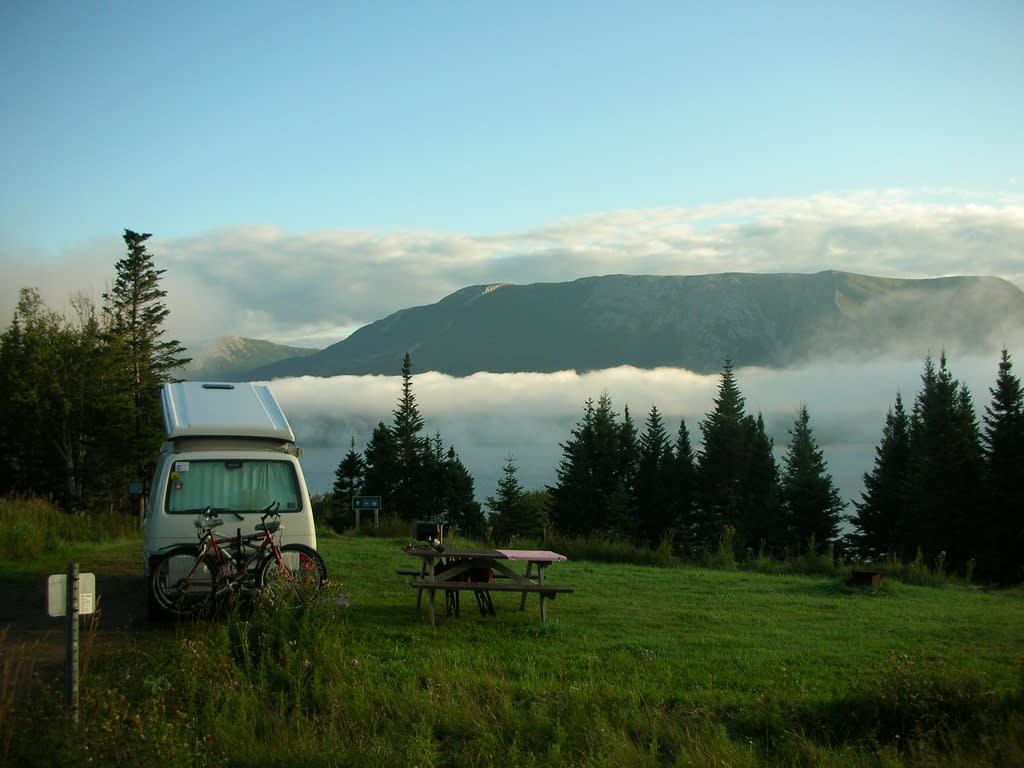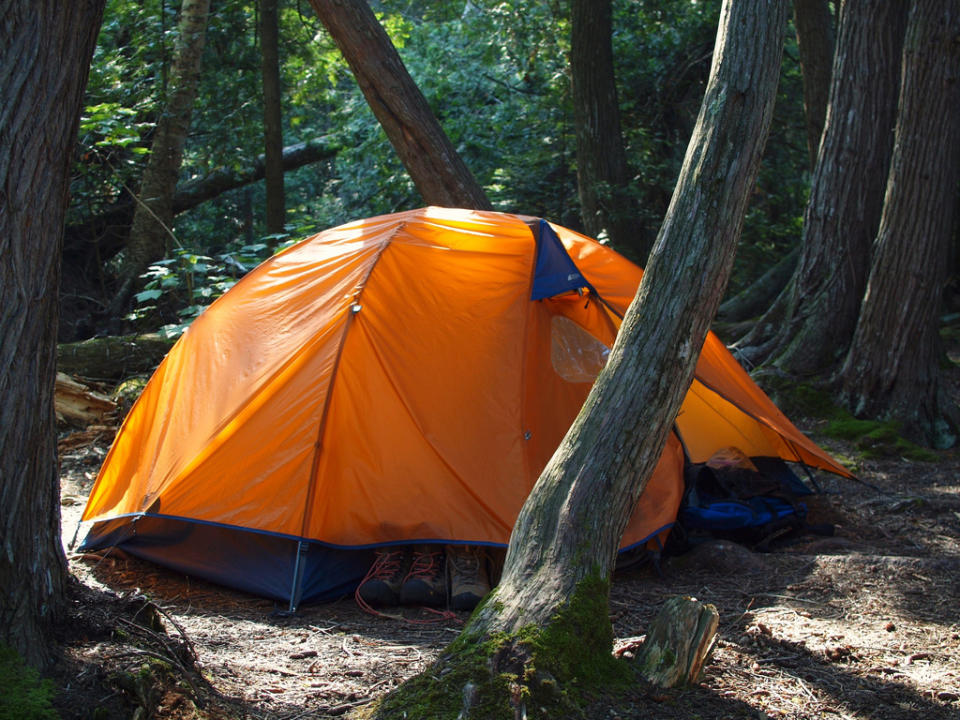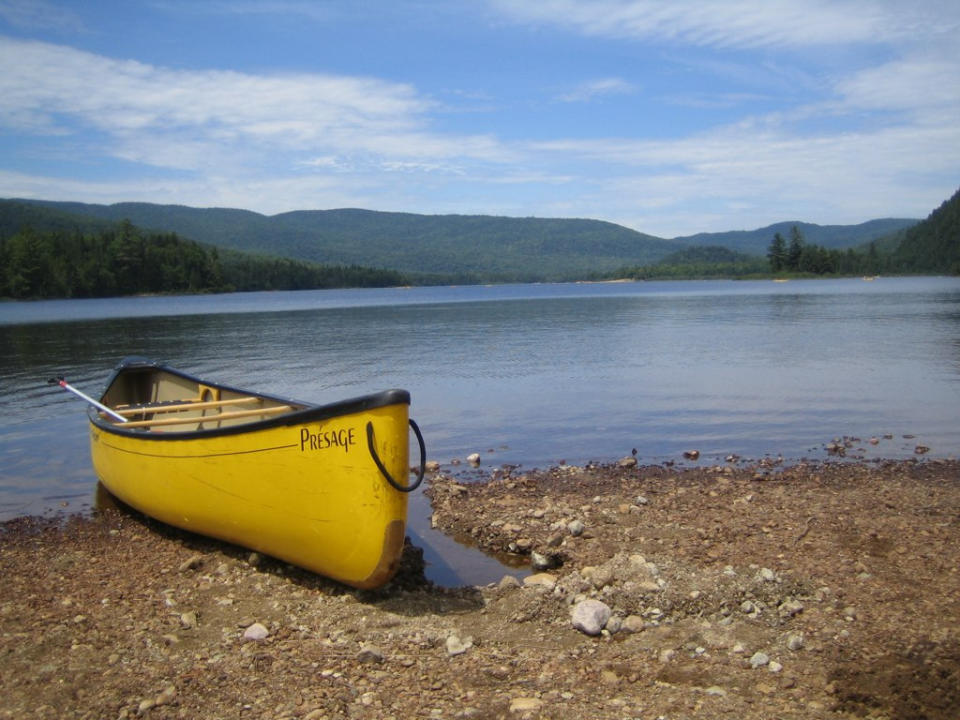How to save money on your next camping or RV trip

Long weekends bring with them the temptation to hit the road and enjoy the great outdoors for a few days. Sunny days and starry nights are just some of the reasons that thousands of Canadians each year pack up their gear and go camping for a few days in the great outdoors.
A recent study from PKF Consulting for GoRVing.ca found that recreational vehicle (RV) camping can be 78 per cent cheaper than other forms of travel. That cost can go down further if you’re tent camping.
Even though you’re not paying for things like hotels and airplane tickets, getting the right kit for your camping trip can add up quickly if you aren’t sure what you should be spending on. There are plenty of cool gadgets out there (I mean, you definitely need a portable espresso maker, right?). The truth is though, you’re not going to need all of them in order to have a great time in nature.
The bare necessities
When you’re setting out to go camping, whether for the first time or just the latest of many adventures, there are a few must-have items you’ll need:
Shelter: Either a tent or an RV, depending on your preference.
Food Storage: You’ll have a fridge in an RV, but you’ll need a cooler for camping, and bear protection for food depending on where you are.
Sleeping Arrangements: Sleeping bag if you’re in a tent, or linens to make up the bed in an RV.
Seating: Folding chairs for around the campfire, which can be simple stools or a lot more elaborate.
Backpack: It will need to hold all your gear if you’re backcountry camping. Otherwise, a day pack for hikes should suffice.
Lighting: A headlamp will help light those dark nights. Bonus: you can strap it around your waterbottle to make an instant lamp.
First Aid: Every camping trip requires a kit, tailored to what you’ll be doing, how long you’ll be gone, and the number of people travelling with you.
Fuel: You’ll need wood for a fire, propane for a portable stove, and gas for an RV, depending on your plans.
Water: Water purification technology will be necessary if you’re backcountry camping, otherwise something to hold your water will do.
Rain Gear: A jacket and rain-appropriate footwear goes a long way to making your trip a pleasant one.
Be prepared
Prepping ahead of time for your trip won’t cost you anything, but could save you a lot in the long run. Doing research beforehand into routes you’ll be taking, activities you’ll be doing and food you’ll be eating can help reduce costs significantly.
“It’s free to prepare and critical to a comfortable camping trip,” says Andrew Sutherland, MEC Outdoor Expert. “If you’re a beginner, ask an experienced friend, check out local hiking groups or learn from the experts at MEC camping workshops.”
Prep becomes even more critical for an RV trip, as not knowing where you’re going can get costly. Unexpected detours and wrong turns cost both gas and mileage (if you’re in a rented vehicle).
GoRVing.ca offers a trip planning tool to help figure out your route. Campers can take advantage of numerous resources offered through specialty stores, like MEC’s Good Times Outside site, or through provincially or nationally-available planning guides, like the information offered through Parks Canada.

Where you can save money
Once you’ve picked up all the basics, you’ll quickly find yourself tempted by all the available gadgets and extras.
“Purchase and pack what you really need,” says Chris Mahony, President of GoRVing Canada. “It’s easy to get caught up with the latest and greatest gadgets available but at the end of the day, remember that your RV is a way to enjoy the outdoors.”
When you pull into the RV campground, you may see people with patio lanterns and other adornments on their units, but skipping the decorations is one quick way to cut costs.
It’s also tempting to eat out at restaurants you may pass along the highway, but those costs can add up quickly, too.
“Most RV’s come with a modern kitchen equipped for all your cooking needs,” says Mahony. “Travelling in an RV allows you to take advantage of local products and farmer’s market, opting for fresh-in season items. Eating in your motorhome instead of dining in restaurants all the time can be a major money saver.”
Another area where campers and RVers often lose money is not caring adequately for their site.
“Forgetting about your outdoor responsibilities like disposing of your waste properly, respecting wildlife and leaving all the beautiful things you find, where you found them,” Sutherland lists as ways people can end up costing themselves. “This can lead to fines which can be expensive.”
Likewise, abiding by the laws of the road can save you money as well.
“With fuel being one of the largest parts of an RVer’s budget, travelling at the speed limit cuts down on fuel consumption,” says Mahony.
Rent, don’t buy
The best way to save some money, regardless of your style of camping, is to rent or borrow equipment before you know if you’ll enjoy adventures in the outdoors, or if you won’t be going very often.
“If you’re a first time RVer, consider renting and experiencing the lifestyle before making the investment to buy,” says Mahony. “You can even rent multiple units on multiple trips to see which vehicle suits your needs.”
Outdoor equipment stores like MEC offer rentals on lots of the items you’ll need for camping at a reasonable price; prices do vary by location, but a tent rental will cost you $20-$25 a day or $100-$125 a week in Toronto.
RVs can be rented for $250-$350 a day or about $1,500 for the week, including insurance. Additional costs can include any kilometers over your contract distance and convenience packages that include towels, linens and dishes if you don’t want to bring your own.
Location
It’s easy to forget because it’s not something you pack, but factor for the cost of where you’ll be staying, too.
“Choose campgrounds and RV parks that only have amenities you plan to take advantage of,” says Mahony. “Campsite fees are usually quite affordable, and with National Parks across Canada waiving admission fees for Canada’s 150th birthday celebrations, there’s even more to take advantage of.”
For those who weren’t quick enough to book a site at a national campground, there are still plenty of sites to be booked at provincial properties. Depending on the province, property and the amenities you’re looking to have, prices can start as low as $5 per night for a site.
If you’re driving an RV, paying to stay in a campground can make your trip significantly more comfortable.
“We recommend staying at a campground,” says Shane Devenish, Director of Canadian Camping and RV Council. “A campground runs anywhere from $40 to $70 a night, and it allows you to get services which include your power and a hookup for water and usually your sewer, hook up to septic system of campground.”
Opting for “boon docking” instead, where you park somewhere on public land, or in a big box store parking lot, may be cheaper at first, but you’ll eventually run out of clean water and need to restock.

Where to invest
If you decide that camping really is for you and something you’ll want to do a lot more of, it’s time to put the money into the hobby. Splurging on certain items can really help make the difference between a lousy trip and an excellent one — you just have to do the research first to decide where your money should go. The best way to get a feel for the right RV for you is to go and see them in person.
“While it may be tempting to purchase the newest and shiniest RV in the showroom, we recommend taking the time to speak with a dealer and determine which RV is best for you and your uses,” says Mahony. “There is an RV for every budget and household.”
The same advice can be given for tents, too: a good quality tent will make your camping trip much better. You won’t be dealing with a leaky ceiling or a stuck zipper, and ultimately replacing the tent in short order, anyway. Visit a retailer in person, it’ll give you an opportunity to identify the kind of tent that will best suit your needs — if you’re going to do a lot of solo backcountry hiking, you’re going to want something very light and just the right size for you.
Arguably more important than the shelter is the sleeping bag or bed where you’ll be sleeping. A good night’s sleep will make your days more enjoyable, so paying to have the best sleep you can is worthwhile. Find a bag that meets your needs, and don’t be afraid of spending more if it means you’ll be happier on your trip.
“Bring a sleeping bag with a comfort rating that approximately five degrees below the coldest temperature estimated during your trip,” says Sutherland. “If you’re an all-season camper, choose a versatile sleeping bag, which has a warmer side for brisk nights and a cooler side for when it’s toasty – this will save you from having to own a summer and winter sleeping bag.”
Beyond the basic necessities, think about the kinds of activities that will really make your trip memorable, or creature comforts that will markedly improve quality of life, and be willing to spend on those. If your trip will be that much better with your campground espresso, then there’s no reason you shouldn’t pick it up as your own little indulgence.
This is a vacation, after all.


